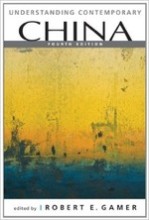Putin's Russia
37 important questions on Putin's Russia
Cliche why not to appoint siloviki (renz argues against this)
- No experience in politics
- Loyalty issues
- Can change it's course
Renz against cliche's
not many siloviki in the presidential apparatus and parliament (kemper's lecture)
March - hybrid regime is..
- Higher grades + faster learning
- Never study anything twice
- 100% sure, 100% understanding
Reasons for JR to be established
2. Marginalizing the communists
3. Allowing elites to express critique without being traitors, channelds social protests (elite compromise)
4. as alternative party of power it challenges and provides a sparring partner with united russia (keeping elite on their toes)
Managed opposition/ parastatal opposition / pseudodemocracy
it also 'mimics' opposition and attempt to channel criticism in such a way it supports the regime.
partly or completely controlled by the state
What does JR tell us about russia's political sphere?
March, inleiding, 5 punten
2. Official nationality is rather moderate
3. Effect is less benign! > (Political)nationality mobilizes extreme nationalism (nashi, zhirinosvky) for regime goals and supresses it (chechnya) when it becomes destabilizing
4. This approach prevents nationalism from becoming an independent and unpredictable force
5. It's ambiguous and inconsistent use of nationalism makes it also an unpredictable international partner.
What is the national idea?
labelled as conservatism, managed democracy, sovereign democracy, rooting identity
main values: focus on patriotism, moral and spiritual values, statehood.
Difference today and tsarist ideology
It is also: more modern, secular, moderate, less autocratic, civic and sovereign democracy has a central role
Critique on idea of russia being nationalistic, proto-fascists
- nationalism of Russian elite is relatively civic and liberal
- Russian nationalist threat is used by both Western and Russian elite for self serving purposes as support for extremists national groups has been relatively weak in elections.
therefore we can call russian nationalism WEAK
Main independent actor reinforcing the civilistional nationalist consensus
Similarities between tsarist national idea and today
- adopting state symbols (nationalistic) and traditions
- emphasis on cultural values of the dominant nation (russian language and orthodoxy)
the primary function is focused on achieving internal stability and order through incalculating loyalty to the authorities in the face of external threats
Main nationalists trends in Russia
2. eurasianism
- eurasia proper
- nostalgic to societ past
Mirror of society, navalny
Contradictory position navalny on nationalism
·Federal structure must be abolished
·Ambiguous (but more civic) Interpretation of Russkiy than ethno-nationalists
oArgues for integration of Belarus & Ukraine (ethnic)
oCondemns religious discrimination but asserts that the religion of Russia is Orthodox Christianity & has not questioned current patriarch’s penetration of school & military.
Contradictory position n on caucasus
·North-Caucasus are central to Russia’s problems
o“Stop Feeding the Caucasus” 2011 media campaign
§North Caucus Federal District receives highest level of subsidy in Russia
oChechen regime operates outside Russian law as Putin’s ‘servant’
·Struggle to take a definitive stance:
oNavalny says Chechnya is not a de facto part of Russia, but does not support succession of Chechnya
oCalls for amnesty of Russian federal forces for war crimes in Chechen campaign, thus excuses illegal acts of Putin’s regime while the Nationalist position is to denounce these.
Navalny's position of federalism
- it is seen as a legacy of an imperial past
- it is designed to keep local oligarchs in power
Place of minorities in the SU
- was culturally integrrated (cultural expression well integrated in the national whole)
- it was politically controlled (subordination)
Labour migration does not fit in framework today because..
- it is not culturally accepted because it does not fit into the national imagery
- it puts the dysfunctions of society on display
Nationalism and liberalism cannot be reconciled because
nationalism has a collective, national discours
non russians are collective to him
ethnic russians are both individuals and collective
however this contradiction did not prevent his political success
very strong anti-putin / anti-sytem
The differences between foreign policy adn PD
The relations between such bodies and the government are often unclear
Difference Soviet PD and PD today
- pd is not only practices by state representatives
Author's suggestion on PD in Russia:
A couple preceding factors before the 2008 wars
missiles in poland by US
kosovo
litvinenko poisoning
this all led to tensions in the euro-Atlantic relations
5 phases of the 2008-war
2/ russian counterattack
3 russian invasion of georgian proper
4. cease fire agreement
5. withdrawal from russian forces (only in extended positions in Georgia in october)
Putin's agenda in 2008
- restoration of its great power through strategic exploitation of its oil and gas wealth.
- preventing Georgia from becoming part of NATO
- protecting it's citizens, responsibility to protect
- this belongs more to the Crimean case > US was seen as a unipolarity in world affairs, the only country that could frame and act on 'international law', mainly through crimea Russia re-asserted itself in the post second world order. Untill 1990, the US was the one that made (and twisted and forced) the international rules. Now a multi-hub structure is emerging: US, Brazil, Russia, India and China.
Georgian motives to enter the war
- protecting its citizens
- re-uniting georgia as a whole
Competing storylines, G
-“Georgia was not the aggressor”, “aggressive Russia using any pretext for a pre-conceived invasion”/ was provocating. Georgian invasion was a response
-Attempt to unite Georgia as a whole, words used as freedom and sovereignty
-Drawing on comparisons with US and broader Western world; “Russia is attacking democracy, basic Western values”
Competing storylines, R
-Right to defend it’s citizens, right to protect from ethnic cleansing (draws onKosov discourse, NATO intervention)
- G attacked our peacekeepers
Why Crimea is not kosovo
- no collective intervention
- no right to annex the region
- western countries should focus on Russia's 'undefined' milities
in 1999 the US was able to control the interpretation and enforcement
of international law to secure Kosovo’s independence without legal consequence,
Washington finds itself in 2014 unable to fully counteract Moscow’s
legal argument that its support for, and ultimate annexation of, Crimea is
equally grounded in international law.
Charap. why does Russia do nothing with Syria?
- author: anxieties about the displacement of the goverments and replacement by Sunni Ismalists which might destabilize Russia's situation itself (chechnya, caucasus)
Why did moscow did not let UN intervene?
- security council should not be in the business of removal of a sitting government
- it might itself be a target of such intervention
- does not belief it is driven by humanitarian reasons (Libyan example)
- sees geopolitics; US wants regime change
- Russia's position thus has more to do with anxieties about US power than Syria itself
What can the USA do now with syria?
Or act through the Security Council and accept it wont intervene (Obama wants legitimation of its actions)
Russia re-asserted itself, empowerment
Reason for medvedev to work together with the church
- he was orthodox
Emergence of prerogative power in chechnya
Pro and cons of chechenization
On the other hand it created new problems: Chechen extremists went into the mountains surrounding Chechnya, violations of human rights by Kadyrov, it weakened the “normative system” and strengthened the prerogative system.
Revenge of the caucasus (3pts)
- degradation of political relations at the federal level, strenghtening the prerogative state
- dependence of federal administration on local regimes
The question on the page originate from the summary of the following study material:
- A unique study and practice tool
- Never study anything twice again
- Get the grades you hope for
- 100% sure, 100% understanding
































